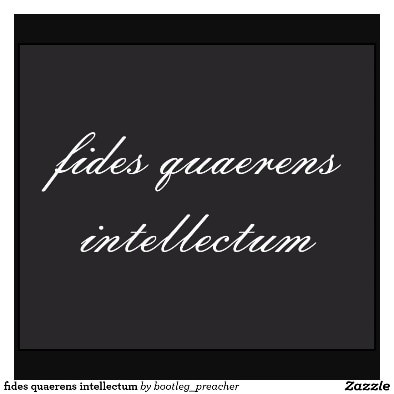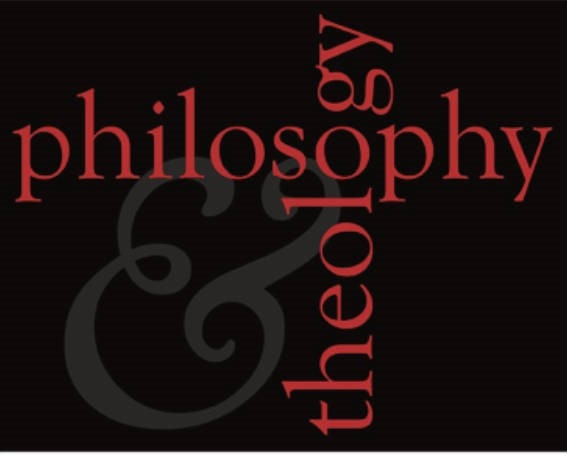Life experience and religious beliefs in general
|
The relationship between significant life experiences and religious beliefs is one of dynamic interplay. Significant experiences may cause people to simply ponder and think deeply about the ultimate questions of human life. But the experiences may also cause doubt and anxiety or offer renewed hope. They may be experiences that lead people to strengthen their existing beliefs or to refute the beliefs held prior to the experience. On the one hand religious beliefs are the framework upon which we understand significant life experiences and on the other hand significant life experiences impact upon our understanding of religious beliefs.
Beliefs Beliefs arise from the complex human act of affirming meaning. Beliefs are both a private or personal as well as a corporate or communal or collective reality. Individuals are connected to communities of belief and the meanings that beliefs offer provide the truths by which persons and groups within society live their lives. In faith systems that have belief in God, the ideas about belief and meaning fall into the study of theology (literally a word or idea about the divine). The medieval theologian, Anselm famously noted that theology gives preference to faith when attempting to understand human experience. His definition of theology is Fides quaerrens intellectum : “faith seeking understanding”. Human Experience The process of making sense of the world and the formation and testing of beliefs does not happen in a vacuum. It happens in a world mediated by meaning. Bernard Lonergan proposes that there is a fourfold intentionality involved when human beings attempt to come to the truth of their experience. He calls this transcendental method of human consciousness. In seeking truth Lonergan claims that four imperatives are at work: attentiveness, intelligence; reasonableness and responsibility. In seeking truth humans ought to be attentive in experiencing that uses the senses to probe reality. Humans need to be intelligent in understanding that considers possibilities of one's experience; be reasonable in judgments of truth and value that chooses between possibilities for not all are reasonable or good; be responsible in deciding that acts in accordance with the truths and goods discerned. Forming beliefs is an action of human consciousness. By these processes primary experience become secondary, the ordinary can become extraordinary; sense experience can come to be understood as a depth experience. Tad Guzie claims that this is the rhythm that makes life human. The raw experience through reflection becomes lived experience named in and celebrated in story and ritual. Types of Significant Life Experiences That May Have an Impact on Religious Faith Significant life experiences are secondary, extraordinary or depth moments that grow out of the primary, ordinary or raw experiences of life so that they become mediated by meaning. Whilst not all significant life experiences are religious experiences, those deeper moments in life can point to the transcendent and impact the spiritual core of the person. The types of significant life experiences that can impact on religious beliefs are many. Significant life experiences include such intense experiences as joy, wonder (awe), suffering, death, major life choices, love, human relationships, and commitment. Each of these types of secondary depth experience can change for better or worse a person’s understanding of belief within a religious tradition. Religious Experience Religious Experience falls into this realm of depth, lived, inner experience. How might this be explained? Following Thomas Aquinas, Dermott A. Lane puts it this way. God is known implicitly in everything that is known. Religious experience enables us to see that which was already there in our experience but which we failed to acknowledge explicitly in the first instance. When we talk about an experience of God we are talking about an experience that sustains and deepens and borders and surpasses all other human experiences. It is a depth experience that transforms, refocuses. It may be deepening, broadening, enlightening or affirming. On the other hand it may be confusing, contradicting or confounding. In any event religious experience is profound in the individual and demands a response at the level of belief. Religious beliefs interpreting life experience – interpretative framework When a person is facing a significant life experience, the religious beliefs surrounding the experience provide an interpretative scaffold for the experience. Religious beliefs shape life experiences and impact the way people understand and interpret their significant life experiences. The spiritual agenda of the person can be reaffirmed, deepened by understanding the experience within the religious categories of the person’s tradition. The beliefs of the tradition, expressed in its rituals and social structure, can offer support in times of substantial change in life circumstances. A significant life experience is often a turning point in a person’s life and can have an immense impact on the way in which life is understood from that time on. A religious context for life experience can offer a framework and affect the way that the person conducts themselves in the world in relation to the experience. When experience is approached in faith, the belief system can offer a sense of support that might be named in religious categories. Feelings of salvation or redemption can result for the faithful adherent and growth in faith and a deeper understanding of the belief system can result. The individual’s interpretation and expression of religious beliefs may change, because significant life experiences change humans. This can then lead a person to develop new approaches, insights and understandings of their traditional religious beliefs. Life experiences impact on religious beliefs – critical reflection in the light of experience The spiritual agenda of the person can be also be challenged, threatened and endangered by intense experience. The critical questioning of long held beliefs can result in the rejection of that belief system by the individual. Through significant social and life experiences, the faith of individuals may adjust. New understandings may immerge and alternative belief structures may be sort out. Faith in traditional confessional formulas may become skewed or abandoned for a time or permanently neglected as the result of a significant experience. Specific Examples Of Significant Life Experiences An example: The experience of suffering For many people, suffering and death and are integrally linked with religious beliefs. While the pain of suffering through illness and injury or the anxiety caused by premature death can call into question belief in a transcendent being or even cause adherents to lose religious faith, for some, the resources of a religious tradition nurture and support the sufferer. A significant life experience can magnify the intensity of belief or weaken the effective power of faith for the individual. Beliefs about the place of suffering and death in human life are central to all belief systems and open to be challenged by the raw nature of these experiences. Individuals confront overwhelming loss or suffering from within their philosophical and religions understandings. How the transcendent is invoked in the face of horrific experiences of grief or suffering will to some extent determine the meanings that are made and the responses that follow tragedy. The meaning which one draws from such experience depends on the strength of those beliefs about suffering and also the way in which they view actions of the transcendent within the world of suffering. On the one hand, often a relationship with the transcendent can be a sustaining factor in dealing with trauma and catastrophe. On the other hand, it can be a hurdle in moving on with one’s life. Often the writings of those who have experienced loss can help others to understand the way in which testing times warrant a reassessment of life and death. The liturgical and pastoral resources of a religious tradition can enable a return new appreciation of life beyond the present crisis. An example: The experience of joy For many people the experience of joy in mutually supportive human relationships is a profound one. To experience the joy of belonging and participation, is to know the deep happiness of peace that is the essence of human longing. To experience great joy of belonging leads to happiness, contentment, reconciliation, thanksgiving and to service. It is human nature that once experienced great joy becomes addictive. When the love and power of the joy of acceptance and participation is understood as transcendent love and joy, there is the desire to know the spiritual in and through the experience. The sharing of moments of joy is then an experience of the transcendent. Such desire can transform the core of the human spirit to the point that the believer “naturally” seeks more. The person of faith can become compelled by transcendent joy to seek what offers that joy in the lives of others. The beliefs of religious traditions have a language of joy and peace in their sacred texts and seek to bring about the joy that comes from human flourishing for adherents of their tradition. Often religious traditions have a larger vision of global rejoicing in a future time of human fulfilment. Personal rituals often point to an ultimate destination of peace and joy for the individual as well as to a justice-filled renewal of all human life and even of the natural world. An example: The experience of wonder and awe Awe and wonder is the characteristic human response to any number of larger realities, from the beauty, power, expansiveness and violence of the natural world, to tremendous feats of body and mind, to our understanding of perceived encounters with the divine. Awe and wonder express our longing and our uncertainty, our fascination and our terror. They point to the transcendent and to the limits of being human. Awe and wonder contribute to the development of spiritual awareness, wisdom, and inspiration and are related to curiosity, intellectual advancement, and spiritual progress. For many people the experience of awe and wonder is central to religious faith. Religious traditions invariably insist on the significance of experiences of awe and wonder in the foundation and development of the tradition. This is especially true of the revealed religions, who understand truth to enter human history at a certain point in the history of human experience. For all religious believers, the experience of awe and wonder is connected intimately with the spiritual world and points to a deeper wisdom about the nature of all things. An example: The experience of major life choices Major life choices include the choice of a life partner or partners, decisions about the family life circumstances, choices about death and procreation. Such choices are moments of ambiguity where earlier certainties become indefinite in a time of change. They are decisions about the future course of life. They are a movement from relative security, through a transition time, an evolution, to a new order of secure existence. For many people the experience of major life choices cannot be understood outside of the ethical and moral codes and ritual practices of the religious belief system that they profess. Religious traditions have developed ritual approaches to marking the development of humans from birth through to the maturity of adulthood and to the end of life. Rites of passage mark the key movements in status in the life of adherents. In association with the rituals are moral standards or norms that mark out the goods of various states of life and stages in the process of life. An example: The experience of grief Every individual must confront a significant life experience and often this includes an encounter with overwhelming loss or suffering. The process of grief is a complex one involving at least some of the following processes: denial, anger, bargaining, depression and maybe acceptance. A grief experience can bring a religious belief into sharp relief and strengthen or weaken that belief. While suffering and premature death can led one to question or lose religious beliefs, it can also at time strengthen an adherents’ commitment to faith. The religious meaning which one draws from such experience related to faith in God and also the way in which one views God’s actions in the world. Death and religious beliefs such as a belief in an ultimate reality and the belief in eternal life are integrally linked. While experiences of loss or suffering can cause one to question their faith in God and eternal life, often a relationship with God can be a sustaining factor in dealing with trauma and catastrophe. On one hand religious faith can be a hurdle in moving on with one’s life. On the other it is a comfort. Often the writings of those who have experienced loss can help others to understand the way in which testing times warrant a reassessment of life and death. An example: The experience of love and commitment For many people the experience of human love and commitment is a profound expression of the intentionality of transcendent love or compassion. An example: The experience of human relationships For many people the experience of human relationships deeply involve religious faith. |
| dermotalane_lonergan.doc | |
| File Size: | 38 kb |
| File Type: | doc |
The Case of the Suffering of Paul
|
|
Conversion
The later experience of the early Christian known as St Paul cannot be understood without reference to his conversion. A year or two after Jesus crucifixion and reported resurrection appearance, Saul was a devout and zealous Pharisee who took it upon himself actively to persecute the small but growing Christian community. He was present at the martyrdom of Stephen (Acts 7:58) and approved the execution (Acts 8:1). He was so zealous in his opposition to the Christians that he was not content to stamp out the new faith in Jerusalem alone. He took deliberate action to obtain authority from the high priest to pursue and round up any Christians he could find in the synagogues of Damascus, a 240 kilometre journey away. At the very end of the journey (which would have taken him about a week), in sight of Damascus, Jesus appeared to Saul. As a result of the experience Saul is baptized and becomes a follower of the Way. Conversion did not eliminate all that was good and true in his life, but enabled him to interpret in a new way the wisdom and truth of the Law and the Prophets. The difference was that now, he saw this One God acting definitively for the salvation of all people – Jews and Gentiles – through the person of His Son, Jesus Christ. It is a profound egalitarian vision found in the baptismal fragment used by Paul in Galatians as part of the circumcision debate. There is no longer Jew or Greek, there is no longer slave or free, there is no longer male and female; for all of you are one in Christ Jesus. (Galatians 3:28) |
Preach the Gospel
Knowing that he had been called by Jesus Christ precisely to proclaim the Good News to the Gentiles (cf. Acts 9:15), Paul felt impelled to carry out that mission. He did not expect any reward for preaching. Rather, he would have to answer to God if he did not do it: "For if I preach the gospel, that gives me no ground for boasting. For necessity is laid upon me. Woe to me if I do not preach the gospel!" Paul appears to become drive by faith to life as a missionary of the gospel. He calls himself the Apostle to the Gentiles. He feels called to spread the good news to the non-Jews of the world. But what is the good news?
Now, brothers and sisters, I want to remind you of the gospel I preached to you, which you received and on which you have taken your stand. By this gospel you are saved, if you hold firmly to the word I preached to you. Otherwise, you have believed in vain.
For what I received I passed on to you as of first importance[a]: that Christ died for our sins according to the Scriptures, that he was buried, that he was raised on the third day according to the Scriptures, and that he appeared to Cephas, and then to the Twelve. After that, he appeared to more than five hundred of the brothers and sisters at the same time, most of whom are still living, though some have fallen asleep. Then he appeared to James, then to all the apostles, and last of all he appeared to me also, as to one abnormally born.
For I am the least of the apostles and do not even deserve to be called an apostle, because I persecuted the church of God. But by the grace of God I am what I am, and his grace to me was not without effect. No, I worked harder than all of them—yet not I, but the grace of God that was with me. Whether, then, it is I or they, this is what we preach, and this is what you believed. (I Corinthians 15: 1-10)
Almost immediately Paul is drawn into argument and in the long term suffers greatly on account of his new faith in Christ and the mission that he feels called to.
Knowing that he had been called by Jesus Christ precisely to proclaim the Good News to the Gentiles (cf. Acts 9:15), Paul felt impelled to carry out that mission. He did not expect any reward for preaching. Rather, he would have to answer to God if he did not do it: "For if I preach the gospel, that gives me no ground for boasting. For necessity is laid upon me. Woe to me if I do not preach the gospel!" Paul appears to become drive by faith to life as a missionary of the gospel. He calls himself the Apostle to the Gentiles. He feels called to spread the good news to the non-Jews of the world. But what is the good news?
Now, brothers and sisters, I want to remind you of the gospel I preached to you, which you received and on which you have taken your stand. By this gospel you are saved, if you hold firmly to the word I preached to you. Otherwise, you have believed in vain.
For what I received I passed on to you as of first importance[a]: that Christ died for our sins according to the Scriptures, that he was buried, that he was raised on the third day according to the Scriptures, and that he appeared to Cephas, and then to the Twelve. After that, he appeared to more than five hundred of the brothers and sisters at the same time, most of whom are still living, though some have fallen asleep. Then he appeared to James, then to all the apostles, and last of all he appeared to me also, as to one abnormally born.
For I am the least of the apostles and do not even deserve to be called an apostle, because I persecuted the church of God. But by the grace of God I am what I am, and his grace to me was not without effect. No, I worked harder than all of them—yet not I, but the grace of God that was with me. Whether, then, it is I or they, this is what we preach, and this is what you believed. (I Corinthians 15: 1-10)
Almost immediately Paul is drawn into argument and in the long term suffers greatly on account of his new faith in Christ and the mission that he feels called to.
| |||||||||||||||||||
|
| ||||||||||||



